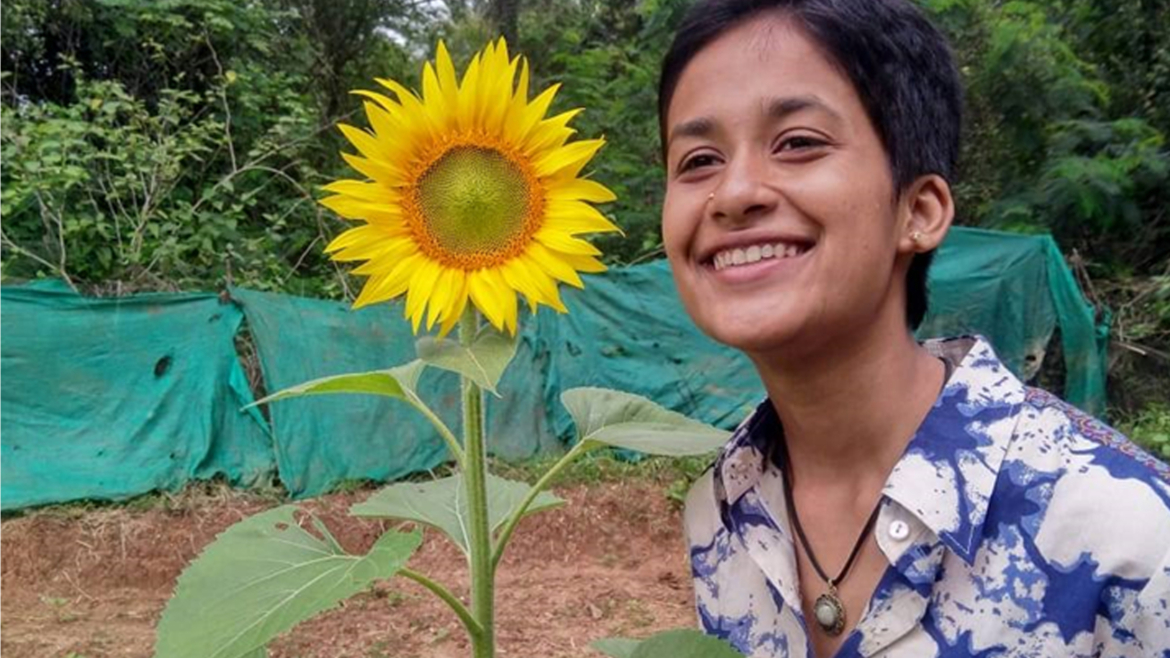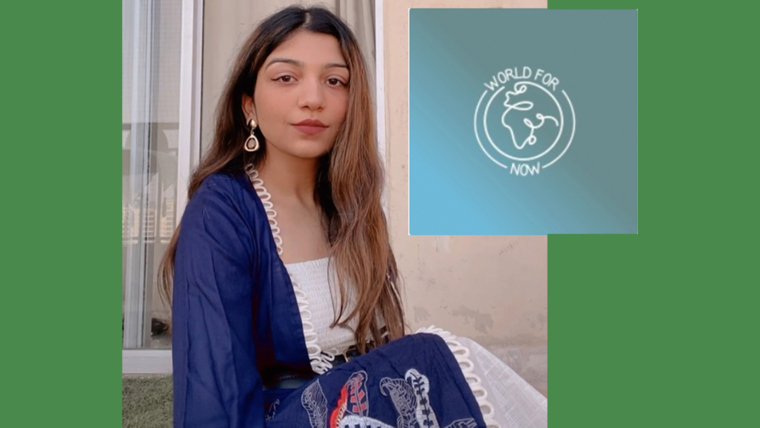About me
I’m Sriranjini Raman, and I’m passionate about reconnecting with nature and supporting people to do the same. My roots are in the Western Ghats, and my home is in Bangalore. I love gardening, especially growing food and cooking the produce, going on hikes, birding, swimming, and climbing trees. I like reading and sharing what I learn through art and stories. I’m a community organiser in the Indian Youth Climate Movement, and my journey began with Fridays For Future India.
I believe in a future filled with innovation, opportunities and livelihoods centred around community, reciprocity, gratitude, compassion and sustainability. I am interested in environmental education, food literacy and resource mobilisation. I dream of climate justice that is intersectional and anti-caste.
What are you doing?
I’m in my final year of university studying Environmental Resource Studies with a minor in international development and environmental assessment. I’m also the founder of Nurture and Pluriversity. Nurture focuses on programs for children and youth to reconnect with nature through food literacy and engaging in land stewardship in the Waterloo Region in Canada. Pluriversity is an online environmental leadership program that empowers Indian indigenous youth to be climate justice leaders and represent the country at multilateral climate conferences like the UNFCCC COP. Apart from this, I also help communities and youth leaders mobilise resources to scale the impact of their projects.
Why are you doing this?
I’m doing this because our natural resources are disappearing, and our environments are getting destroyed daily due to decades of inaction and ignorance. I’m doing this because I realised that access to nature and green spaces is a privilege, and most young people do not get an environmental education. I’m doing this because the national parks, wildlife sanctuaries, biosphere reserves, conservation reserves and protected areas I visited every summer as a child and continue to visit have colonial history and displaced millions of indigenous people and tribes. In the movement, we have a saying, “We’re all in the same storm, but we’re in different boats”, for intersectional climate justice, we need to dismantle systems of oppression and power dynamics and let the people most affected by the climate crisis and original stewards of the land lead the climate movement. Climate solutions needed to be bottom-up, inclusive and equitable and happen through collaboration and understanding.
When did you begin?
I began when I started connecting with the land as a child through composting and gardening with my mother. Spending time in nature and feeling the land helped me heal from trauma. This inspired me and led to shadowing some of India’s best naturalists and herpetologists in the Western Ghats every summer in high school and then becoming a climate activist at university in 2019.
How did you begin?
I begin by cold emailing/ DM’ing people who inspire me; this included the international Fridays For Future Movement. I got connected to like-minded individuals in India and helped organise with Fridays for Future Karnataka and then transitioned to supporting Fridays for Future India. The movement is now like my family, a really big family; we started with 20 people and now have over 40,000 youth across the country working towards climate justice.
What has been the impact?
The impact has been having a local Fridays For Future chapter in every state in the country and a network of youth. In 2020, in collaboration with other youth groups, we did a campaign to Withdraw EIA 2020, and 17 lakh people across the country agreed with us and sent an email to the MOEFCC. Apart from this Pluriversity offered 30 youth across the country a free course on the introduction to environmental justice from an Indian perspective with some of the best environmental practitioners, activists and experts. Two participants of Pluriversity attended COP 26 in Scotland and we hope to send 4 participants to COP 27 in Egypt. Nurture ran pilots in the summer and over 60 youth aged 11-18 participated in our community garden and education program.
Where can one know more about your work?
I share my experiments, adventures and learnings on Instagram. My writing, wins and project updates on LinkedIn.
Can you share a list of the green books on your bookshelf, for young people interested in environmentalism?
- Braiding Sweetgrass by Robin Wall Kimmerer
- The Woman who fell from the Sky by Joy Harjo
- Sand Talk by Tyson YunkaPorta
- Undrowned: Black Feminist Lessons from Marine Mammals by Alexis Pauline Gumbs
- Women Who Run with the Wolves by Clarissa Pinkola Estes
- Pluriverse: A Post Development Dictionary by Ashish Kothari, Ariel Sallah et.al
- Caste and Nature by Dr Mukul Sharma
- Ishmael by Daniel Quinn
- Small is Beautiful by E.F Schumacher
- Last Child in the Woods by Richard Louv



